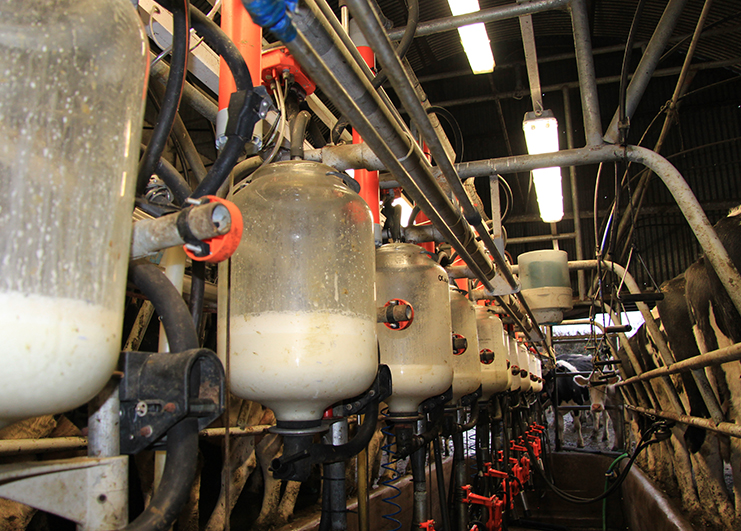Cheese making
Here at Knockanore, we produce a range of speciality cheeses made from raw milk. We use only the milk from our own top quality pedigree Friesian herd grazing in the green pastures of the Knockanore Valley.
Just as with the farm, where we pride ourselves on the quality of our pastures and our dairy herd, quality is the keynote in the cheesemaking facility.
We’ve perfected the art of cheese making with the help of our dedicated staff some of whom have been with us since inception. We operate a comprehensive HACCP system (Hazard Analysis Critical Control Point). This is combined with a rigorous testing regime and strict staff training criteria, this ensures that each and every piece of cheese which leaves our farm has undergone a strict and controlled process to ensure highest quality.
The basics of cheese making
Cheese is essentially a means of preserving milk. Milk is made up of water with some solids suspended in it – proteins and fats. What we are mainly doing in the cheesemaking process is separating out those solids from the liquid.
To do this, first the acidity of the milk needs to be raised and we do this by adding a carefully selected culture of bacteria to warm milk. Once this has gotten to work eating up the sugars in the milk (the lactose), we then add an enzyme called rennet which works to coagulate the milk. Thereafter with agitation or stirring the curds (solids) begin to separate from the whey (liquid). How much moisture is separated will be determined by the style of cheese being made. So for softer cheeses the curds are often scooped out of the vat straight in to a mould, whereas for harder cheeses like ours we need to expel more moisture from the curds. This is achieved by cutting the curds more finely and also heating them, as well as in the cheddaring process where the slabs of curds are stacked one on top of the other repeatedly. We also press our cheeses overnight.
The maturation process is also key and will determine the texture and flavour of the cheese. Our young cheese is semi-firm and very mild, but as it ages it loses moisture and becomes harder and develops different layers of flavours.
The benefits of raw milk
Milk, like every living food contains bacteria, most of which is destroyed by pasteurisation, many believe that by pasteurising milk prior to making cheese, we lose a component of the cheese which is enhanced by the natural and beneficial bacteria and other compounds which aid the cheesemaking process and result in a more complex style of cheese.
